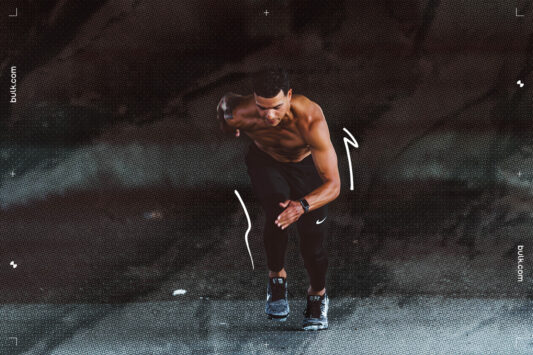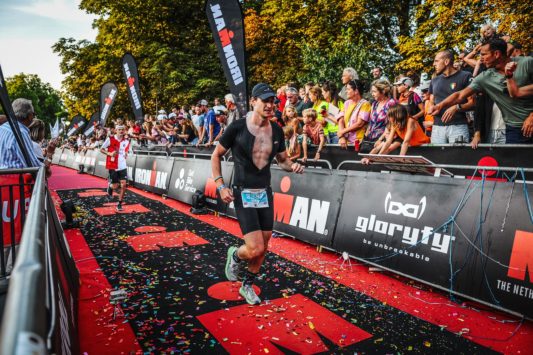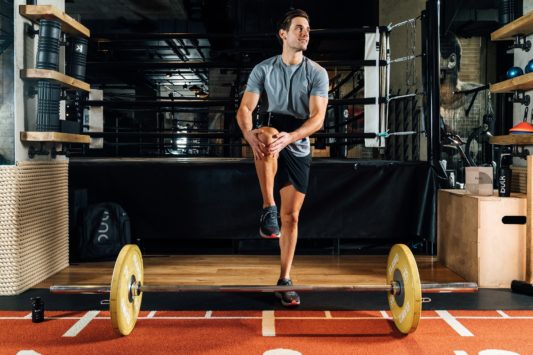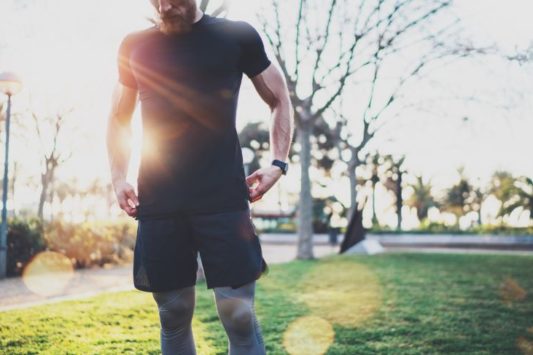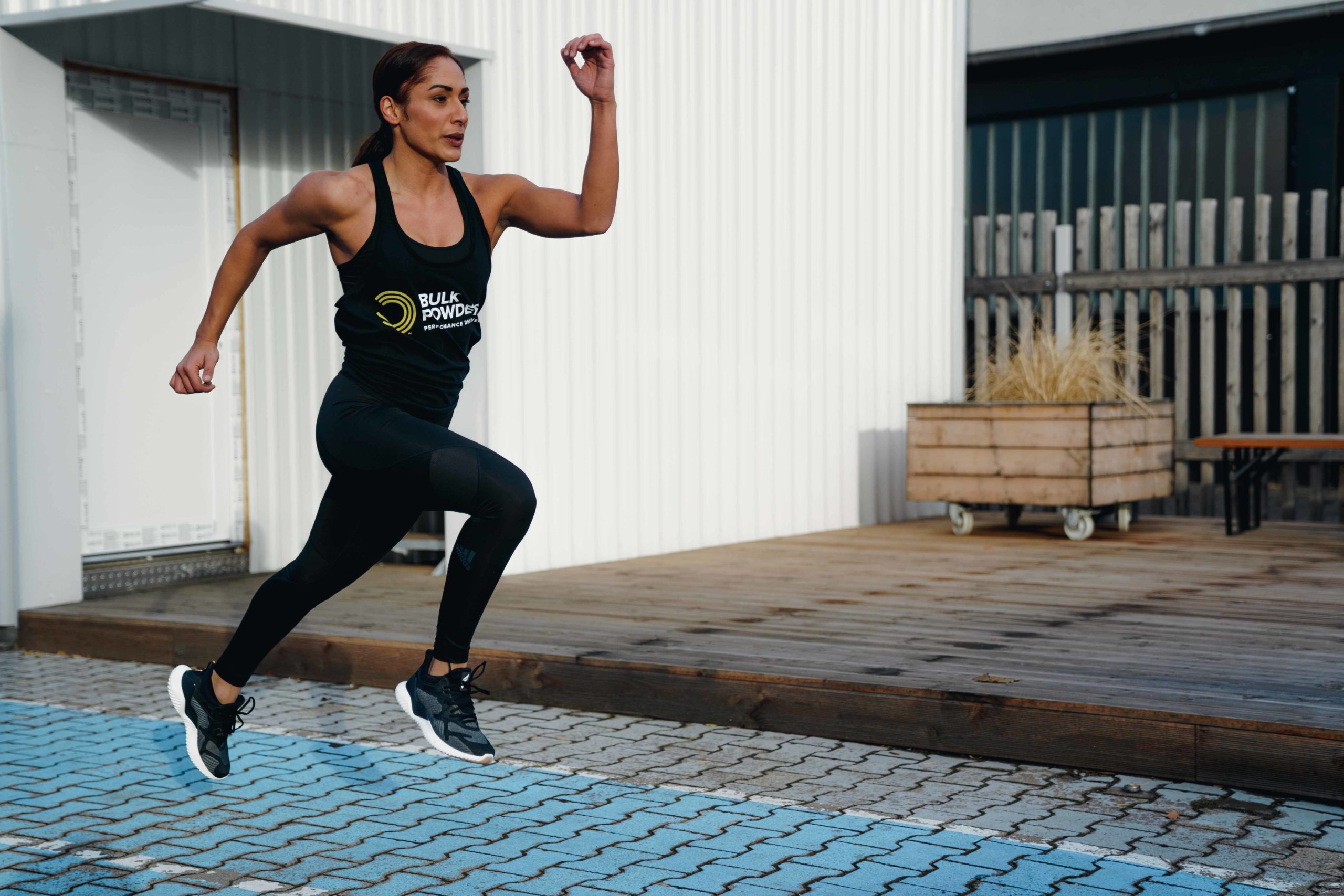Knowing what to eat before a run can be tricky. You want to be fuelled, but not too full, with enough energy to keep you going. Sliding into that sweet spot is the key to success. And it doesn’t need to be complicated. With the support of relevant scientific studies, and advice from sports nutrition expert, Abi Roberts, here we outline what to eat before a run.
What is the best food to eat before a run?
When it comes to fuelling your body before a run, the best food to eat will depend on your individual needs and preferences. Generally, it’s recommended to eat a meal or snack that is rich in carbohydrates, moderate in protein and low in fat and fibre.
Carbohydrates are the primary source of fuel for your muscles during exercise, while protein helps to repair and build muscle tissue post-run. Foods such as oat, toast with nut butter, banana and or a sports drink can provide the energy you need to power through.
Many people like to have coffee before a run. Overall, it is established that consuming low-to-moderate doses of caffeine around before exercise (15-80 min) improves endurance performance by 2-7% [1].
- Toast or bagel
- Oats
- Nut butter
- Banana
- Coffee
- Trail mix
- Dried fruit
- Breakfast bars
“It’s important to find the right foods that work for you through a bit of trial and error, says Abi. “While some can’t tolerate much food before a run, if any, others can consume a snack shortly before and still perform well.
It’s good practice to test different approaches. There is no definitive right or wrong when it comes to pre-run fueling, it’s about finding what suits your body and running routine.”
See our blog on the best foods for runners for more insight on specific foods for endurance athletes, before and after your runs.
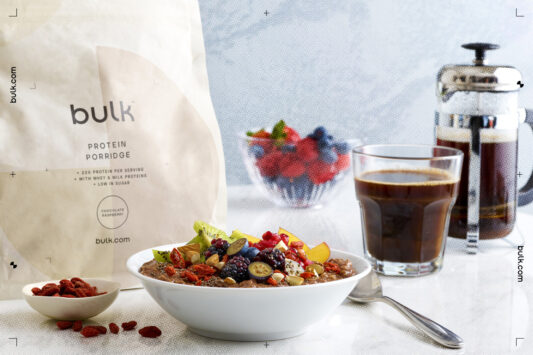
Should you eat before a run?
While some people prefer to run on an empty stomach, it’s generally recommended to eat something before you tie your laces and set off into the fresh air. Running on an empty stomach can lead to low blood sugar levels, which can cause fatigue, dizziness and even fainting.
However, it’s essential to find the right balance between eating enough to fuel your run and not overeating, which can lead to discomfort or cramping during exercise. Experiment with different pre-run snacks or meals to find what works best for you.
The idea that doing a fasted cardio burns more fat is a myth. Studies indicate that body composition changes associated with aerobic exercise along with a hypocaloric diet are similar.
This is regardless of whether an individual is fasted prior to training. Hence, those seeking to lose body fat can choose to train either before or after eating based on preference [2].
What to eat before a morning run
If you’re an early riser and prefer to run in the morning, it’s a good idea to fuel your body properly before putting those shoes on. If you have more time before your run, you could opt for a small meal that includes whole grains, lean protein and fruits.
Eating the night before will also help keep you energised into your morning activity. Try to have a meal with carbs the night before.
“Aim to eat a light snack that is rich in carbohydrates with a higher GI, such as a banana or a piece of toast with jam”, says Abi.
What to eat before a short run
For a short run, you may not need as much fuel as you would for a longer run. A light snack such as a piece of fruit or a small energy bar could be enough to provide the energy you need to complete the run. Make sure to eat at least 30 minutes before to ensure proper digestion.
“If the aim is to run at a quicker pace or do interval training, there’s some immense benefits to caffeine before shorter runs”, says Abi.
What to eat before a long run (half-marathon or marathon)
Before a long run, such as a half-marathon or marathon, you’ll need to provide your body with enough carbohydrates to sustain your energy levels for the duration.
A meal rich in complex carbohydrates, such as whole-grain bread, oats, pasta or rice, along with some protein such as chicken, fish or yogurt are suitable options.
Although races often start early, try your best to eat two or three hours before to allow enough time for digestion. Bananas and bagels are good choices because of their low GI and fast absorption.
“My best advice is to wake up early to get your breakfast in as soon as you can so you have time to digest it”, advises Abi, “ideally around 3 hours before you start. But this is largely down to personal tolerances and preferences.
“You should aim to consume a carbohydrate-rich meal, such as a bowl of porridge and fruit, avocado and eggs on toast, or granola with banana and milk. These are the runs where you should stick to what you’re used to in terms of food, and avoid trying anything new that could disrupt your long run.
Additionally, consuming a light snack just before you go might also be beneficial, such as a banana or some dried fruit.”
What to eat the night before a run
Eating a balanced meal the night before a run can help to ensure that your body has enough energy to perform at its best.
Aim for a meal that is rich in complex carbohydrates, such as brown rice or wholegrain pasta, along with some lean protein and vegetables. Avoid heavy, fatty, or spicy foods that can cause discomfort or indigestion. Make sure to drink plenty of water to stay hydrated.
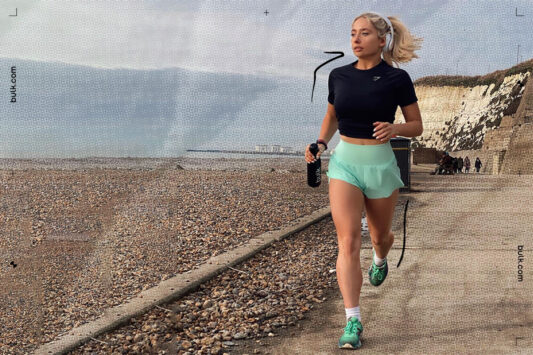
What not to eat before a run
Certain foods can cause indigestion before a run, so it’s best to avoid them. Foods high in fibre and saturated fats such as fried foods, cheese or beans can take longer to digest and cause discomfort during exercise. As mentioned earlier, spicy foods can also cause digestive issues, so it’s best to avoid them too. This may sound obvious, but it’s also best to stay away from alcohol before your run.
- High-fibre foods
- Fried foods
- Cheese
- Beans
- Spicy foods
- Alcohol
“The key to optimal performance is prioritising the right pre-run foods”, says Abi. “The foods above can cause significant digestive discomfort as they typically take longer to digest, which can hinder performance.
“Avoiding these foods and instead opting for easily digestible, balanced meals that provide a sustained release of energy is a much better approach”.
Other advice on eating before running
In addition to eating the right foods before a run, it’s also important to stay hydrated by drinking plenty of water before and after exercise. It’s also recommended to avoid alcohol and tobacco, which can negatively impact your performance.
Do what works best for you – Try a variety of foods to see how you respond. Everyone is different, so you need to trial different things to see what best impacts your performance.
Use supplements – For post-run recovery, stretching and foam rolling is most important. However, ensuring your nutrition is high protein helps to ensure you recover as efficiently as possible. See our workout on ‘Should you take pre-workout before cardio?’
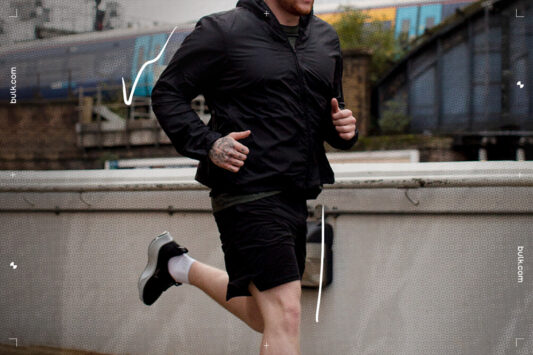
Frequently Asked Questions
How long should you wait after eating before you run?
It’s recommended to wait at least one to two hours after a meal before running. This allows for proper digestion and prevents discomfort during your run. However, if you need to eat closer to your run, opt for a small, easily digestible snack such as a piece of fruit or a handful of nuts.
Should you eat during a run?
Usually, no. Only for very long endurance events should you consider eating during a run. In our guide on how to train for an Ironman, we provide all the information you need on intra-workout fuelling for endurance races.
Is it better to run on an empty stomach?
Running on an empty stomach, also known as fasted cardio, can be beneficial for some people as it can promote fat burning. However, it’s important to listen to your body and ensure that you have enough energy for your run. If you feel weak or lightheaded, it may be better to eat a small snack before your run.
What should you eat after a run?
After a run, it’s important to replenish your body with a balance of carbohydrates and protein to help with muscle recovery. Good options include a smoothie with fruit and protein powder, a turkey sandwich on whole wheat bread or a quinoa and veggie bowl with grilled chicken.
Should you carb load before a run?
High dietary carbohydrate intake (carb loading) for several days before a competition is known to increase muscle glycogen stores, with subsequent ergogenic performance benefits often seen in events longer than 90 minutes in duration [3].
Since it only really benefits longer runs, it’s not necessary for shorter runs or regular training sessions. For sustained performance in training, it’s important to focus on a balanced diet overall to fuel your body for exercise and not rely on these kinds of techniques.
We believe in encouraging everyone to find their passion for exercise. For more fitness content, check out @bulk for recipes, ambassador workouts and gym tips. Join our community of fitness lovers and foodies.











